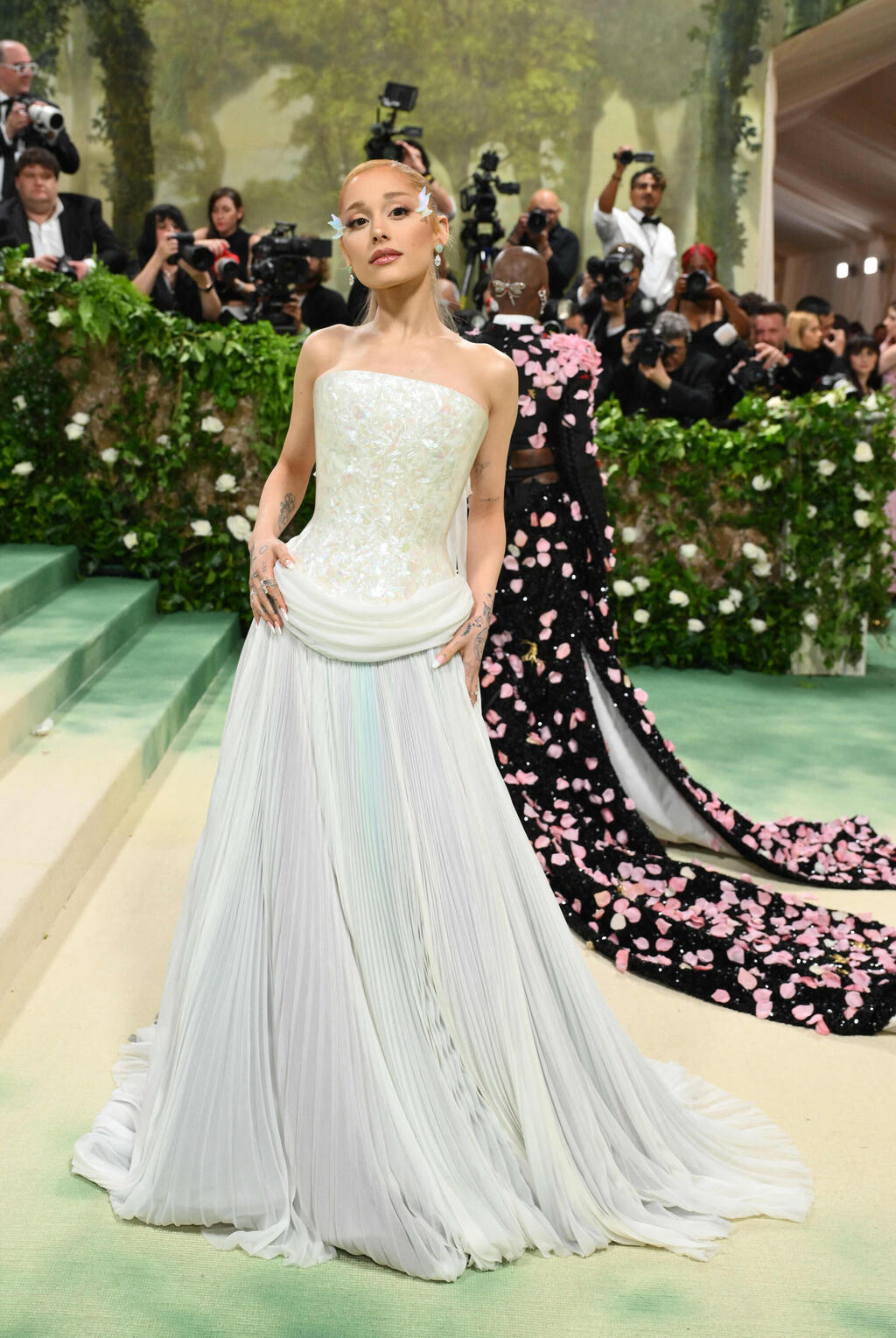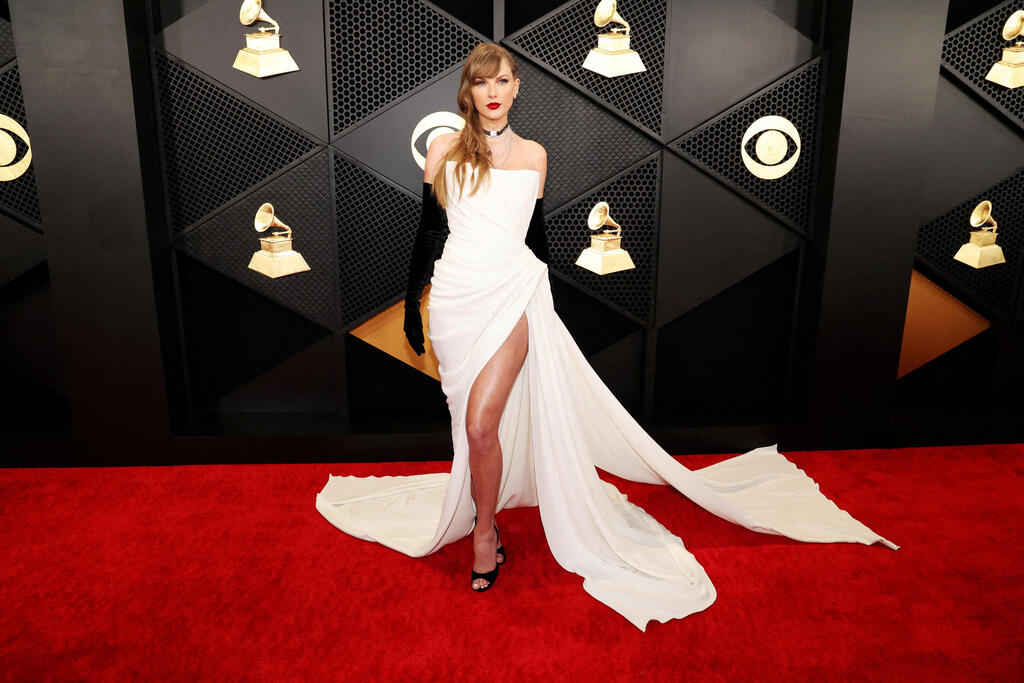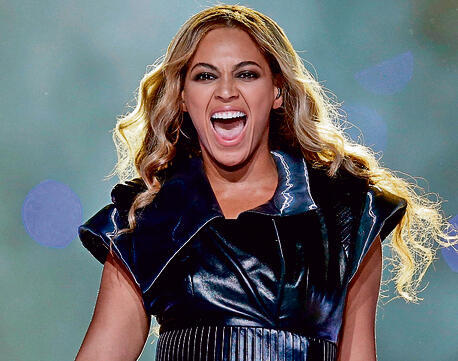Getting your Trinity Audio player ready...
The Met Gala is considered the most prestigious haute couture event New York City can offer. It was held two weeks ago and its fashion aspect was presided by the fashionistas Beyoncé and Zendaya, which made the event truly sparkle.
While celebrities were wearing lavish outfits, pro-Palestinian activists were protesting across the street, frustrated by the celebrities' silence over the Palestinians' situation amid the war in Gaza.
Under normal circumstances, this incident would become an anecdote of how American celebrities are imitating Marie Antoinette with their lavish lifestyles while Palestinians are dying in Gaza. However, while TikTok dictates the global agenda, photos of the glamorous Upper East Side party were circulated along with pictures from Gaza.
The controversial videos from the Met Gala ignited a new kind of protest, aimed at the world's biggest stars who are not expressing support for Palestinians. Activists began blocking and unfollowing celebrities' social media accounts to damage their visibility, exposure, and, consequently, their income. All social media platforms allow users to mute or block any account.
Blocking the accounts of famous or influential people means not seeing any content they generate on social media which includes posts, photos, videos, and collaborations with sponsors. The number of people watching this content is translated into Hollywood's big stars' income, so the campaign is aimed at the bank accounts of famous people who are not doing enough for Palestinians according to the movement.
The activists demand that the celebrities adopt a position against Israel and be in favor of the Palestinians in the Gaza war. Somehow, the stars who made it onto the blacklist are not those who expressed support for Israel, but mainly those who remained silent until now and did not address the war at all. Among the famous people affected are: Beyoncé, Taylor Swift, Justin Bieber, Kim Kardashian, Nicole Kidman, Harry Styles, Zendaya, and Hailey Bieber.
The silence of the celebs
Hours after the Met Gala, the hashtag Blockout2024 appeared on TikTok, started by an anonymous user who calls himself the same name. Through the hashtag, the user spread the idea of blocking some of the world's biggest celebrities, including Taylor Swift, Kim Kardashian, Beyoncé, and Justin Bieber. In one video that has accumulated over a million views so far, he said, "We have full control over the incomes of news outlets, celebrities, and artists. They make money off our hate, they make money off our praise. They do not make money when we block them and forget their names. Our attention is their currency."
Blockout2024 uploads new videos with the daily celebrity block of the day, encouraging others to follow his lead. Another TikTok user added to the trend. "It’s time to block all the celebrities, influencers, and wealthy socialites who are not using their resources to help those in dire need," she said in her video. "We gave them their platforms. It’s time to take it back, take our views away, our likes, our comments, our money."
Jenny, a TikTok user from Vietnam, told The New Arab news site that she is participating in the campaign because of "the genocide going on in Palestine." According to her, "I’ve never been able to comprehend the power of social media until I saw a whole movement to support Palestine, Congo and Sudan started off from TikTok. Especially among Gen-Zs as they are perceived to be the generation that’s much more sensitive to social matters. I personally feel so much rage, as to why people can put so much more effort into participating in a lavish event, which costs thousands of dollars, while being completely benevolent at the fact that people are being bombed to pieces on the other side of the world."
Meanwhile, the pressure mainly affects relatively small influencers - mostly social media stars and not beyond that. American influencer Hailey Khalil, who has about 10 million followers on TikTok, posted an eight-minute apology video for a clip she uploaded from her performance at Coachella. The clip featured music from the movie "Marie Antoinette" starring Kirsten Dunst, under the title "Let Them Eat Cake." Another influencer, Chris Olson, with over 12 million TikTok followers, who has also been mentioned in many block lists, posted a video talking about his involvement in the efforts to assist Palestinian families in need.
The digital guillotine
It's definitely understandable why TikTok youths are trying to boycott and silence celebrities to influence their social media activity. According to the CMO Survey, a leading marketing survey used to predict marketing trends, 74% of internet users in the US are on social media. Social media is expected to experience a 126% increase in marketing investments in the next five years. From sports organizations to charities, everyone must use social media to reach a larger audience. Although it is highly beneficial, it proves to be a two-edged sword.
First, exposure remains the most important thing in terms of marketing, whether it's a product, a person, or an idea. The more celebrities stay in the public eye, the more fans remember them. The days of longing to see a famous person who is avoiding the spotlight are long gone. This is something Taylor Swift completely changed. Social media makes celebrities seem more accessible, and this accessibility makes them more vulnerable. They can use social media to show they are real and authentic, but it also requires them to express opinions on issues they were never required to share before.
However, the blocking movement, dubbed the "digital guillotine," is a very young protest that so far hasn't made an impact. No top-tier star has lost a significant number of followers yet, sparking criticism from within the protest movement.
Last week, a Twitter user circulated an electronic flyer with a long list of writers and authors, divided into different colors according to their stance towards Israel and the Palestinians, and recommendations to boycott those who are pro-Israel. The responses were mixed, with people supporting the project, but others deemed the movement antisemitic and similar to McCarthyism. Pro-Palestinian activists raised concerns that this tactic is not a strategy, but a distraction from what is happening in Gaza.
To understand this campaign's ineffectiveness, it is enough to take the example of Beyoncé. She has been receiving harsh criticism since October 7 for not being vocal enough in support of Palestinians and opposing Israel. She received countless threats on social media for showing her Rennaissance tour movie in Israel in December despite opposition. Since then, she has been consistent with this issue and yet, her new March album soared and broke records.





